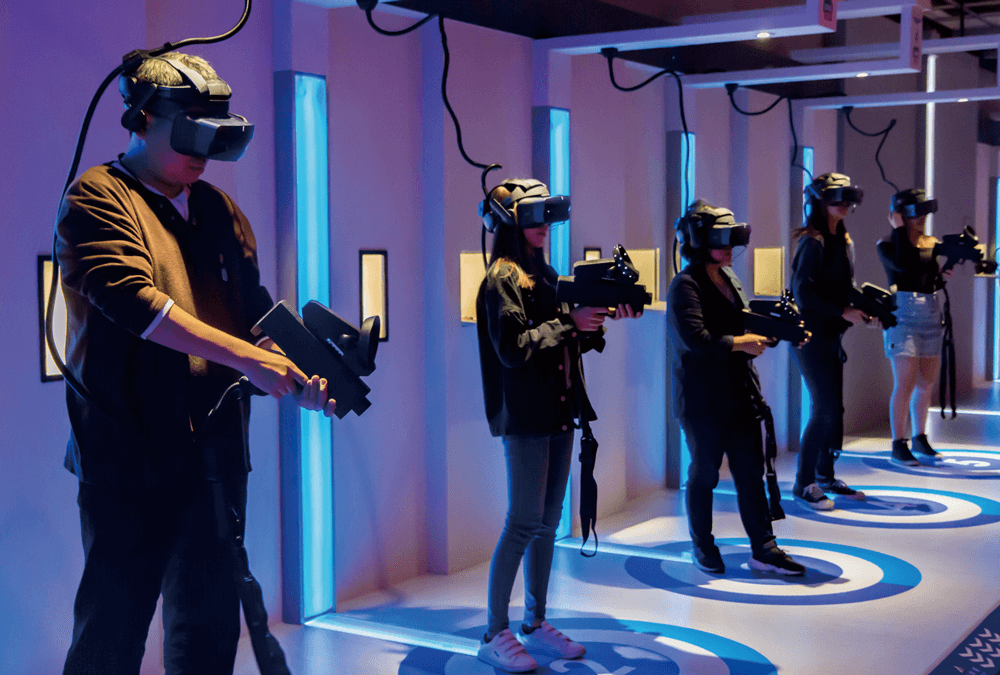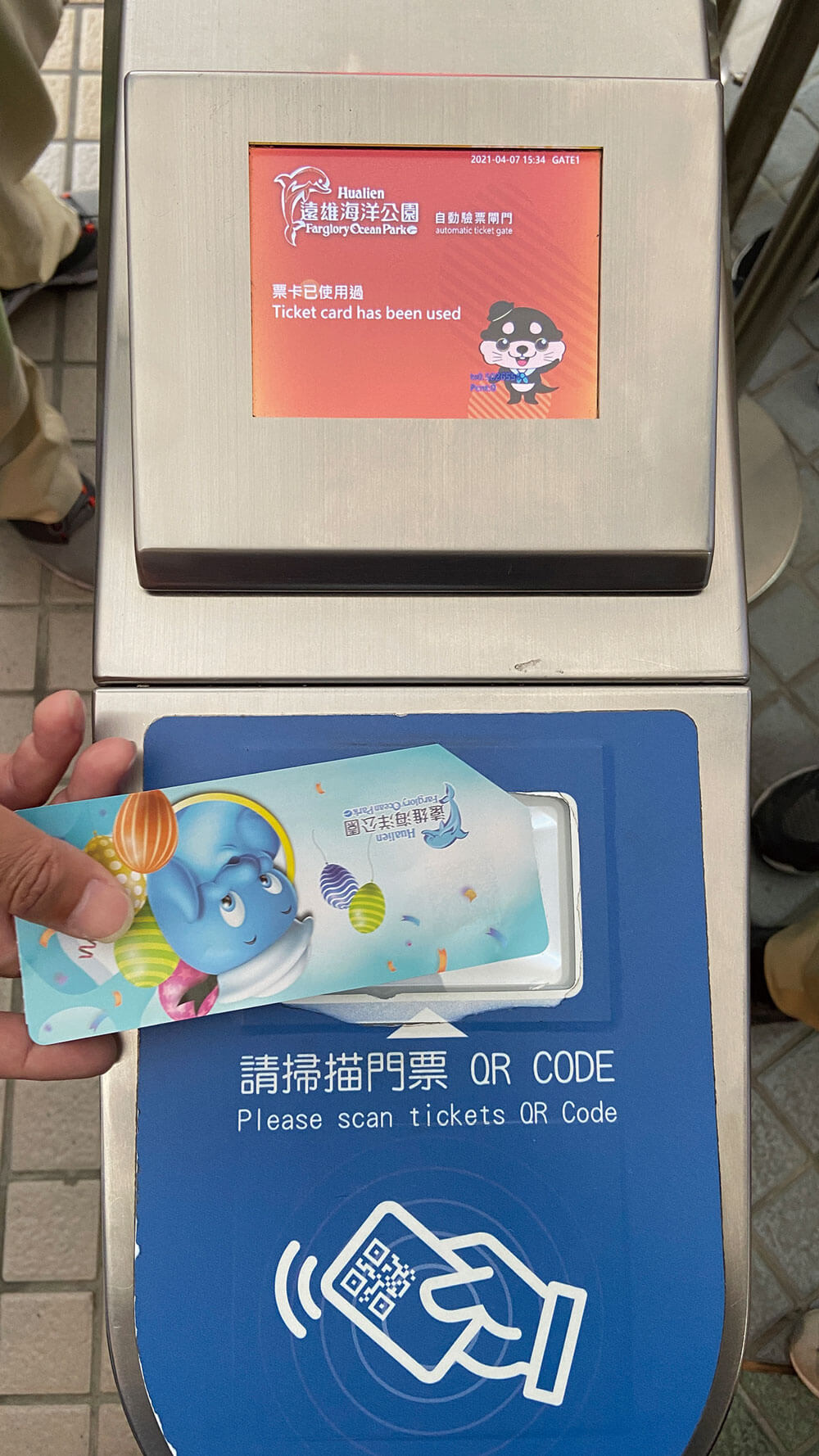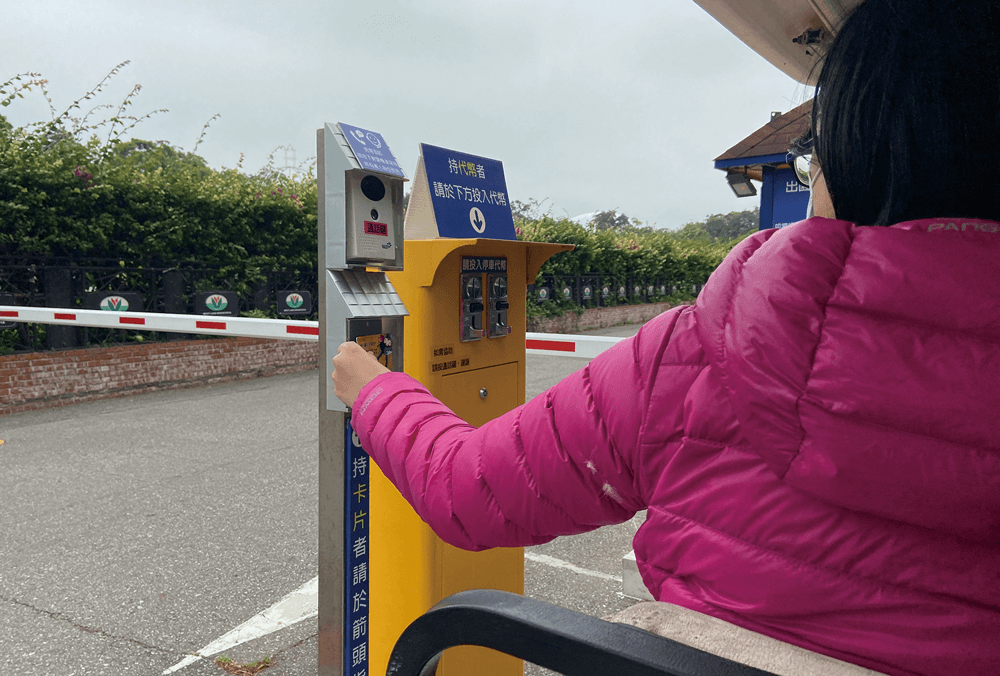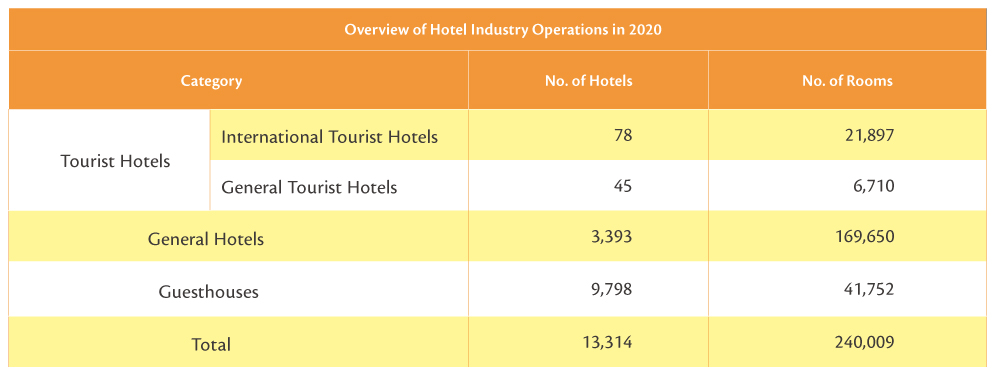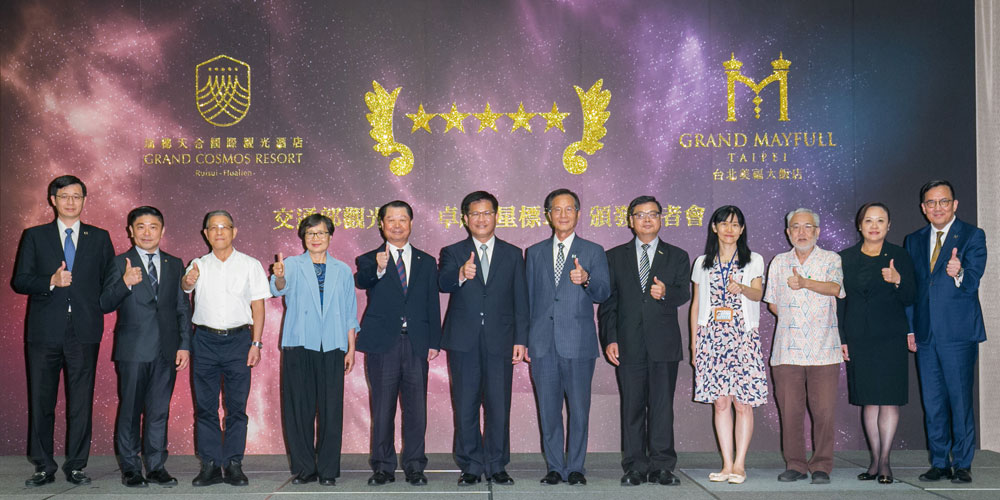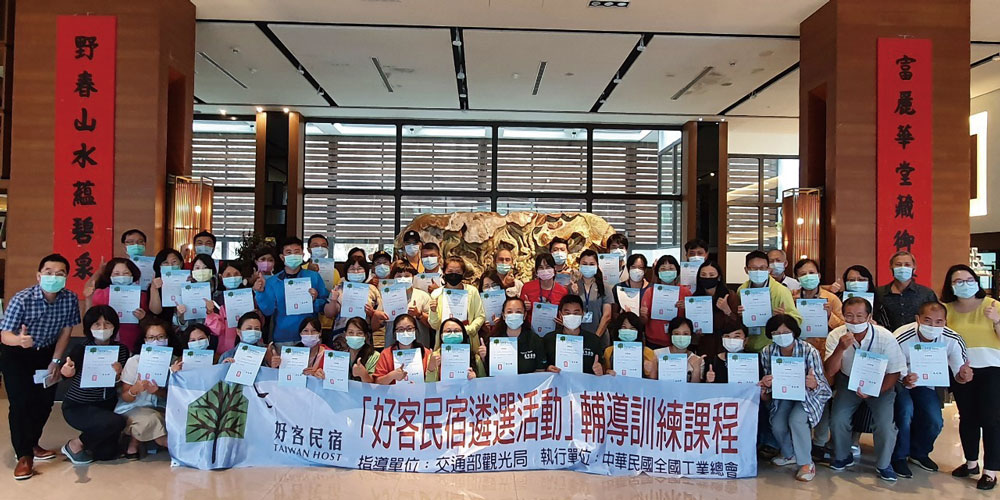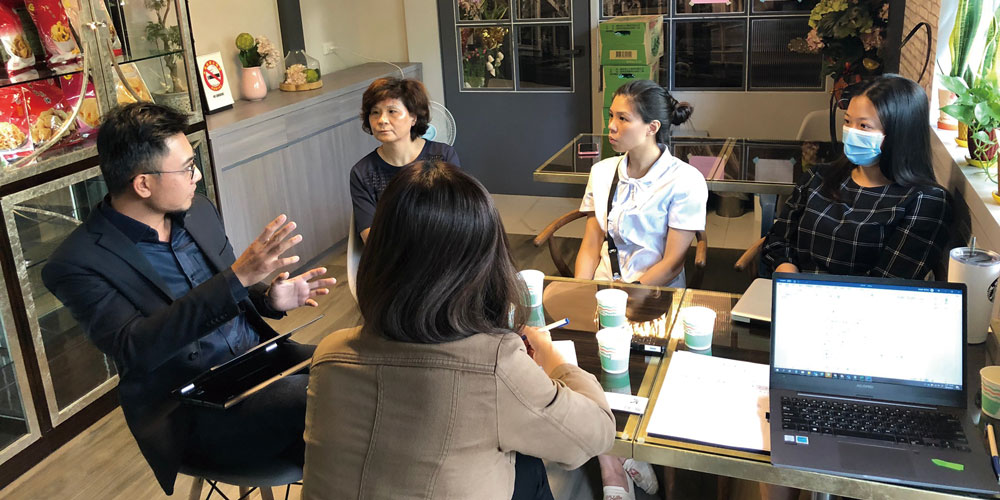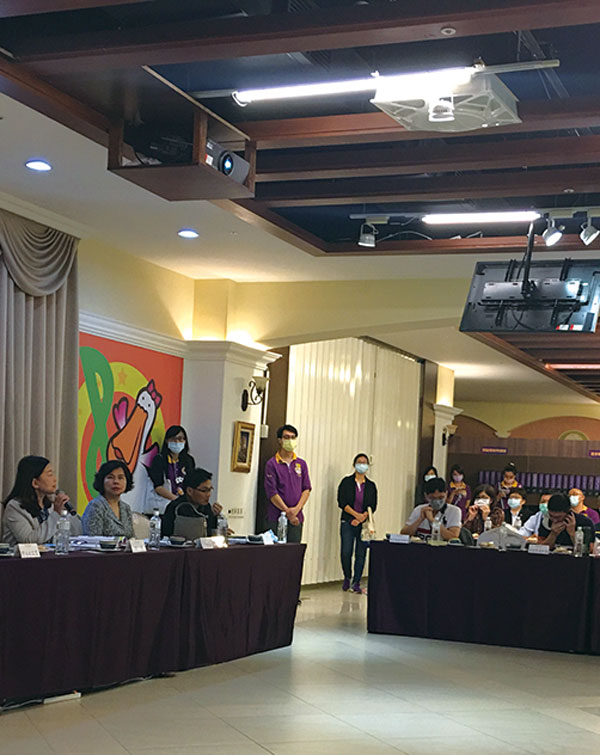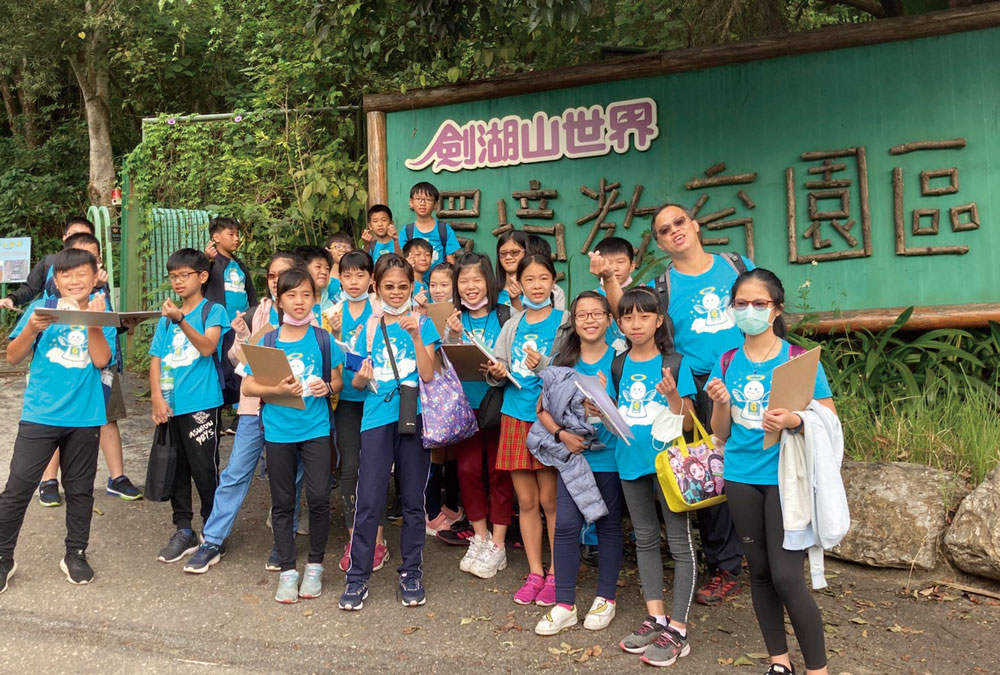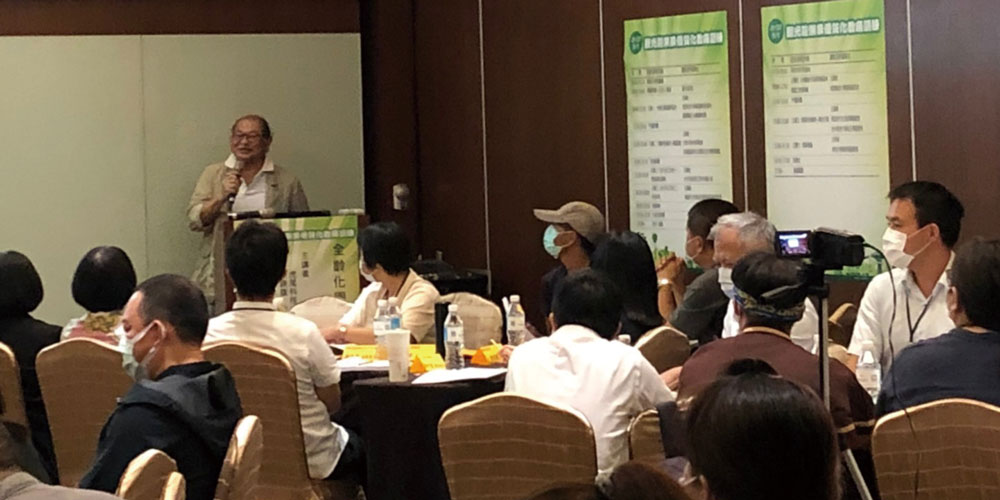Guidance and Management of the Tourism Industry
Travel Agencies
COVID-19 has prompted countries worldwide to adopt border controls and other responses. These measures have brought international tour group travel to a near standstill and severely affected tourism-related industries. Taiwan acted early to minimize the impact of the epidemic. Domestic tourism boomed and travel agencies differentiated their services to attract travelers with high-quality tours focusing on local culture and life and industries formed strategic cooperation ties and integrated resources to upgrade, transform, and revitalize the tourism sector. A total of 115 new tourism companies were formed in 2020, injecting new life into the industry.
Current Status
Guidance to Enhance Tourism Industry Competitiveness
The Tourism Bureau continued to assist travel agencies in developing specialty and high-quality tour products, establish product brands, and create industry added-value to enhance their competitiveness. It promoted industry optimization, transformation, and upgrading and encouraged travel agencies to develop high-quality tourism products for active seniors and disabled persons. The program introduced a new image of domestic tourism with local culture walking tours and in-depth experiential tours combined with the tastes of Taiwan. In response to the epidemic, travel agencies created domestic tourism business opportunities, transformed operations, and introduced high-quality tours. For example, tours to Linbian Township in Pingtung County combined fishing trips, fishing village culture, hand-made snacks, and seafood to present visitors with an innovative fishing village tour experience and window to local life.
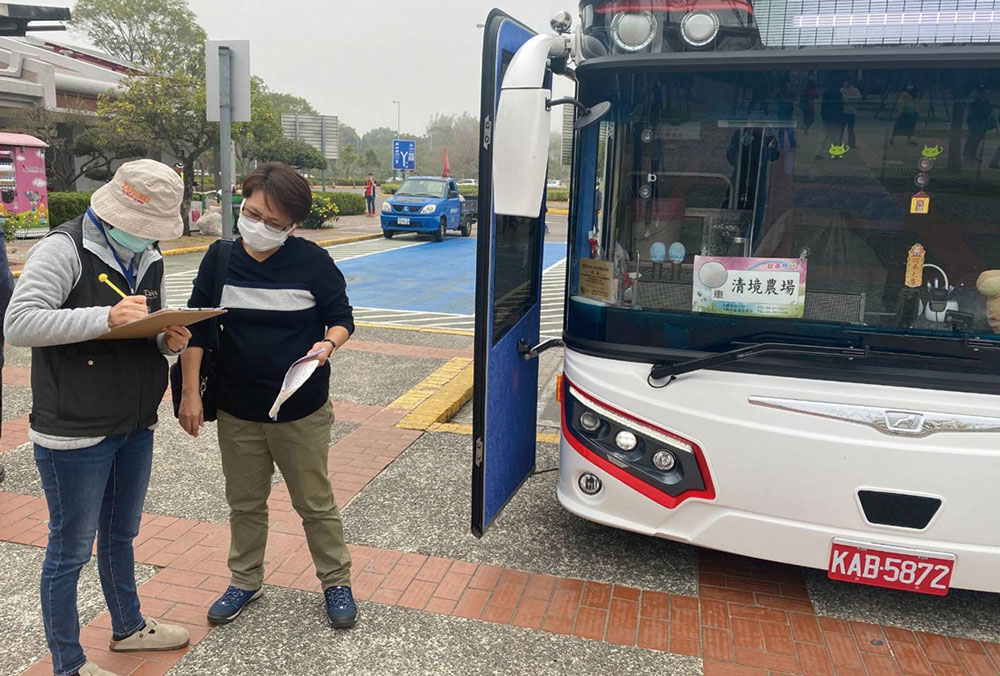 Tour group safety inspections were conducted in conjunction with the Directorate General of Highways.
Tour group safety inspections were conducted in conjunction with the Directorate General of Highways.
Strengthening Travel Safety Management
The Tourism Bureau strengthened regulatory and advocacy assistance to travel agencies to establish travel safety concepts and enhance the safety of domestic tourism. It also conducted audits, enforced travel safety regulations, and continued to jointly inspect tour bus safety with the Directorate General of Highways. For example, tourist coaches were stopped at road checkpoints and bus tour groups were audited during the Lunar New Year holiday, Wuling Farm Cherry Blossom Season and long weekend holidays to implement tourism quality and safety management. In 2020, a total of 997 tour groups were inspected.
Protecting Consumer Rights
- A Consumer Protection page was added to the Tourism Bureau's Executive Information System to promptly disclose, by law, information on violating businesses, travel agencies with suspended or revoked business licenses, travel agencies that discontinued business, and agencies that discontinued business and dissolved to facilitate real-time information searches by travel consumers and protect consumer rights.
- In 2020, a total of 3,253 consumer dispute cases were received (including travel disputes and appeals and guidance to members of the Travel Quality Assurance Association, R.O.C. in mediation of travel disputes and appeals), of which 2,242 cases were settled, representing a resolution rate of 68.92%.
- A Standard Form Model Contract for Overseas Cruise Travel and items to be recorded and not to be recorded was drafted and promulgated in 2020.
Amending the Law to Adapt with the Times
- With the adoption of network technology, travel agencies require less space than traditional physical stores to conduct their business. They can also share premises with other profit-making businesses without causing confusion or misidentification by counter-parties so long as their space is clearly demarcated. In addition, agencies can share marketing resources, reduce costs, improve efficiency through cross-industry alliances to enhance market competitiveness. In view of this and the growing popularity of online transactions, regulations on travel agencies sharing premises with other profit-making business were relaxed following review and amendment of Article 16 of the Regulations Governing the Administration of Travel Agencies.
- Article 6 of the Regulations Governing Tour Guides was amended to delete stipulations requiring notation of languages on foreign-language tour guide licenses. The change brings the tour guide examination system more into line with actual needs as stipulated in Paragraph 1, Article 32 of the Statute for the Development of Tourism.
Hotel Industry
Current Status
Tourist Hotel Guidance and Management
To maintain guest accommodation rights during the epidemic, routine inspections were conducted at four tourist hotels, unscheduled joint inspections at six hotels, and written inspections for 91 hotels. Inspections were also performed at 36 hotels in conjunction with the policy on country of origin labeling of pork raw materials; and 54 hotels were inspected for compliance with standard form contracts for vouchers. The Tourism Bureau also continued to supervise normal self-inspection management by tourist hotel operators and strengthen improvement of service quality.
Hotel and Guesthouse Guidance and Management
- The Tourism Bureau continued to conduct regular inspections and supervise local governments in implementing hotel administration actions to assist them in improving hotel management results. In 2020, local governments inspected 5,154 hotels (including 4,330 licensed hotels, 219 unlicensed hotels, and 605 daily rental suites); and 5,520 guesthouses (including 5,106 licensed guesthouses and 414 unlicensed guesthouses). The Tourism Bureau supervised local governments according to policy in providing guidance to 12,792 hotels and guesthouses on country of origin labeling for pork raw materials and inspecting 66 hotels for compliance with voucher standard form contracts.
- Evaluation and selection activities were carried out to improve hotel quality and establish the Star Hotel and Taiwan Hosts brand image. In 2020, a total of 68 businesses participated in the Hotel Star Rating. At the end of 2020, there were 432 star-rated hotels with a total of 52,121 rooms. A total of 170 guesthouses completed the Taiwan Hosts selection process, bringing the cumulative number Taiwan Hosts certified businesses to 1,059.

Providing Loan Interest Subsidies to Upgrade Tourism Services and Facilities
The Tourism Bureau provided preferential loans and interest subsidies to help the tourism industry improve services and facilities, create a high-quality tourism environment, comprehensively improve the quality of tourism, and promote tourism development. As of 2020, it had helped the industry to obtain 271 preferential upgrade loans totaling NT$12.48 billion and 121 interest subsidies totaling NT$320 million.
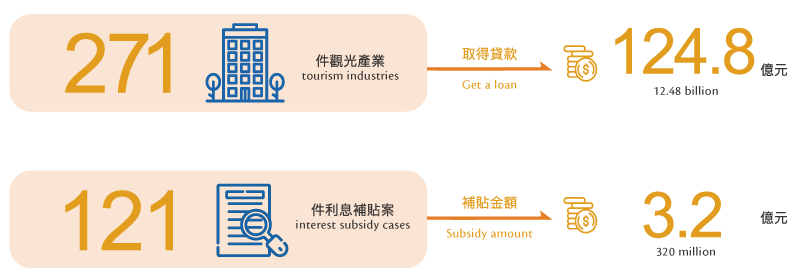
Guidance on Hotel Transformation and Innovation
The Hotel Transformation and Innovation Management Matching Guidance Plan helps older hotels to introduce innovative management capabilities and resolve problems related to the inter-generational management transitions. The plan provides bridges between older hotels and interested young people, individuals, or groups that can bring innovation and an entrepreneurial energy to hotel operations and give hotels new opportunities to reinvent themselves. Matches made under the plan helped five hotels transform operations. These success stories were announced on the “TaiwanStay” website as a reference for hotel operation and management.
Establishing Functional Benchmarks for the Hotel Industry
The Tourism Bureau completed three occupational competence benchmarks (for hotel e-commerce operators, activity instructors, and marketing specialists) in September 2020 to foster the occupational abilities of hotel employees, align skills with industry needs, reduce the gap between education, training, and application, and increase hotel employee workplace productivity. Freely downloadable from the Ministry of Labor's Integrated Competency and Application Platform (iCAP), the benchmarks help hotel-related companies, schools, and training institutions to master and properly apply key training points to achieve the long-term goal of building up hotel industry talent and enhancing the international competitiveness of Taiwan's hotel industry.
-
Three functional benchmarks for the hotel industry were established in 2020.
-
Hotel E-Commerce Staff
-
Activity Instructors
-
Marketing Specialists
Tourist Amusement Enterprises
Current Status
In 2020, Taiwan had 25 licensed and operational tourist amusement enterprises, of which 22 were classified as major investment projects and three were classified as minor investment projects.
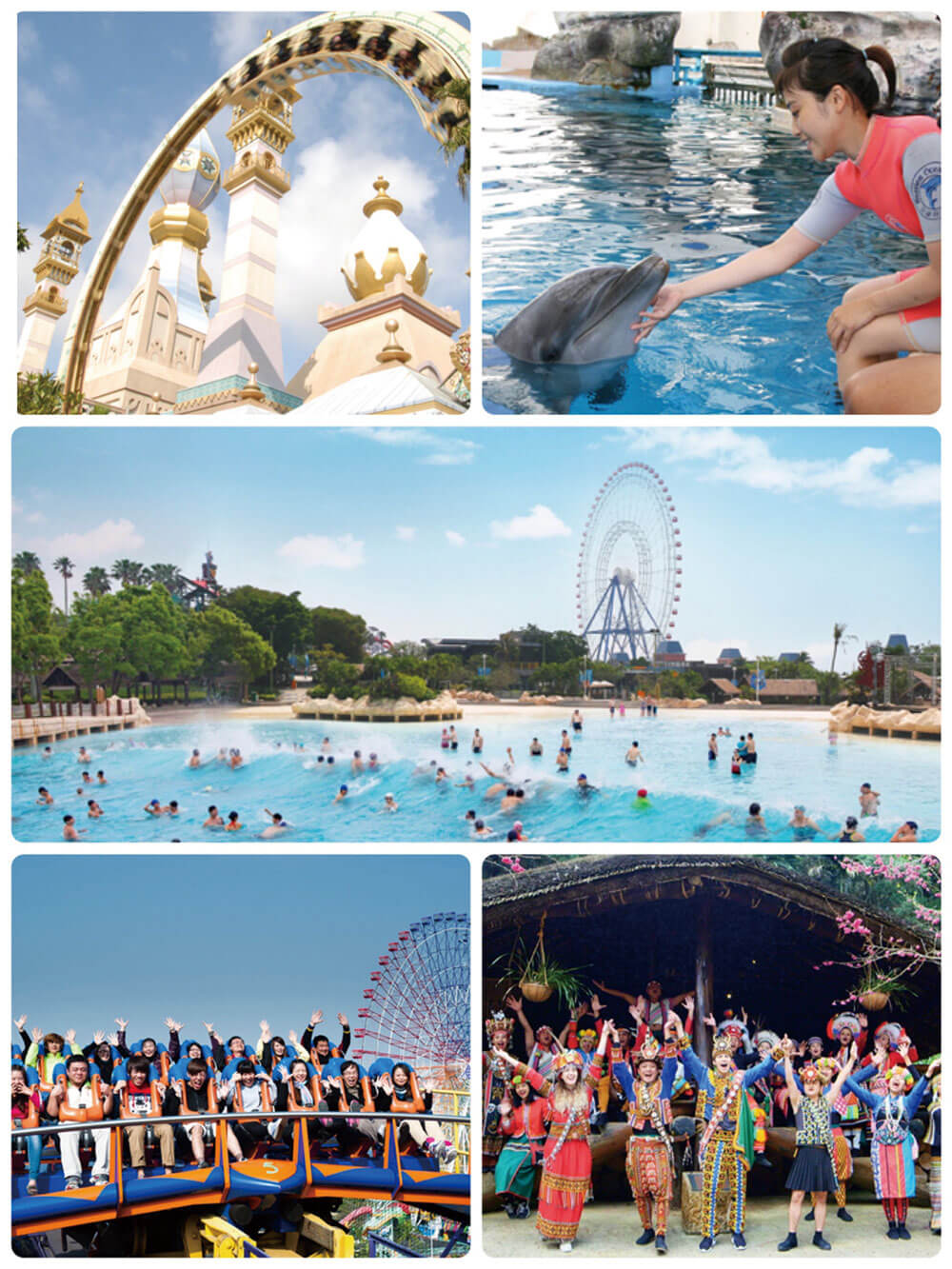 Theme parks offering a diversity of amusements (Top-Five in the 2020 Assessment: Lihpao Land, Janfusun Fancyworld, Farglory Ocean Park, Leofoo Village Theme Park, and Formosan Aborigi-nal Culture Village)
Theme parks offering a diversity of amusements (Top-Five in the 2020 Assessment: Lihpao Land, Janfusun Fancyworld, Farglory Ocean Park, Leofoo Village Theme Park, and Formosan Aborigi-nal Culture Village)
Operating Status of Licensed and Operational Tourist Amusement Enterprises
-
Major Investment Projects (2020)
 22 No. of Hotels
22 No. of Hotels -
Minor Investment Projects (2020)
 3 No. of Hotels
3 No. of Hotels
Park Establishment Inspections
Strengthened control and planning review for the establishment and development of new amuse-ment enterprises to ensure the tourism competitiveness of such businesses.
Operations and Management
Strengthened safety management mechanisms for amusement enterprises:
- Strengthened administrative supervision to protect consumer rights in accordance with the Regu-lation for the Management of Tourist Amusement Enterprises.
- Implemented a three-level management mechanism to protect consumer rights and strengthen the participation of local authorities.
- 2020 Supervision and Evaluation Competition (25 companies participated)
Supervision and Evaluation Competition
13Outstanding
- Lihpao Land
- Janfusun Fancyworld
- Farglory Ocean Park
- Leofoo Village Theme Park
- Formosan Aboriginal Culture Village
- Shanlinxi Forest Recreation Area
- Window on China Theme Park
- E-DA World
- West Lake Resortopia
- Leopard King Safari Zoo
- Little Ding-Dong Science Theme Park
- Jianshanpi Jiangnan Resort
- Atayal Resort
8Excellent
- Kentington Resort
- Dongshi Forest Garden
- Yeliu Ocean World
- ancewoods Hotels & Resorts
- Shangrila Paradise
- Yuan Sen Applied Botanical Garden
- Yiyuan Resort, and Yun-Hsien Park.
Certification Assistance
Environmental education venue certification10 Participants
- Yun Hsien Holiday Resort
- Window on China Theme Park
- Little Ding-Dong Science Theme Park
- West Lake Resortopia
- Dongshi Forest Garden
- Formosan Aboriginal Culture Village
- Shanlinxi Forest Recreation Area
- Janfusun Fancyworld
- Jianshanpi Jiangnan Resort
- Yiyuan Resort
Halal restaurant certification 7 Participants
- Leofoo Village Theme Park
- West Lake Resortopia
- Lihpao Resort
- Formosan Aboriginal Culture Village
- Janfusun Fancyworld
- Jianshanpi Jiangnan Resort
- Yiyuan Resort
Guidance Provided to the Amusement Enterprises on Obtaining Environmental Education Venue Certification
Industry Training
Assistance was provided to the amusement park industry to improve service quality and build a high-quality amusement environment. Two courses on industry development and professional training were arranged.
-
 Target Group
Target Group -
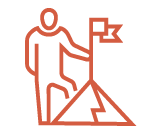 Objective
Objective
Workshop/Course Title
Education and Training to Upgrade the Quality of Tourist Amusement Enterprises
![]() Middle and upper man-agement
Middle and upper man-agement
![]() Universal design for all-ages parks
Universal design for all-ages parks
Application of smart technology
Developing Tourism OTAs and Strengthening Digital Transformation
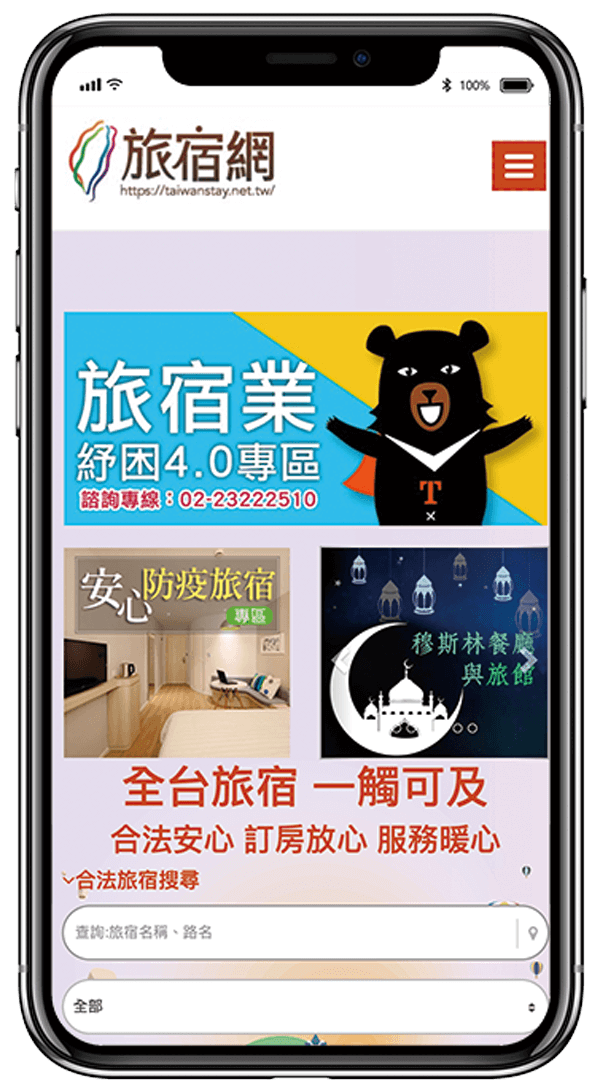 TaiwanStay Website
TaiwanStay Website
Travel Agency Digitalization
A Travel Agency Digital Literacy and Demand Survey was conducted to understand digital awareness among travel agencies and promote input. The survey results provided a basis for guidance to travel industry associations in areas such as 1) education and training in digital transformation, including multimedia marketing; 2) online travel modes, 3) data decisions, 4) mastering consumer trends, 5) ongoing promotion of digital business models, and 6) adoption of enterprise resource management (ERP) systems to help agencies adopt system management concepts, understand the convenience of Application Programming Interface (API) connections, and provide visitors with a fast and efficient digital purchasing and service experience.
Hotel Digitalization
Online room-booking functions were added to the TaiwanStay website to provide hotel operators with reservation system options based on their business and marketing plans. The site enables consumers to quickly book rooms at licensed hotels and provides new channels for hotel marketing. As of the end of 2020, a total of 50,891 rooms at 1,556 hotels were available for reservation through the site. The site has handled 4,671 room bookings with a total reservation amount of more than NT$13.64 million. The Tourism Bureau will continue to encourage the development of hotel room reservation functions, help small and medium-sized hotel operators to adopt digital room booking functions, upgrade hotel digital literacy, and lighten hotel operation and marketing costs to enhance international competitiveness.
Incentives were provided to encourage the hotel industry to operate smartly, strengthen digital capabilities, and improve overall quality through enhanced digital operations. For example, the industry received subsidies to adopt ERP and link hotel property management systems (PMS) with the Tourism Bureau's TaiwanStay website to upload operations data. A total of 45 such subsidies were granted as of the end of 2020.

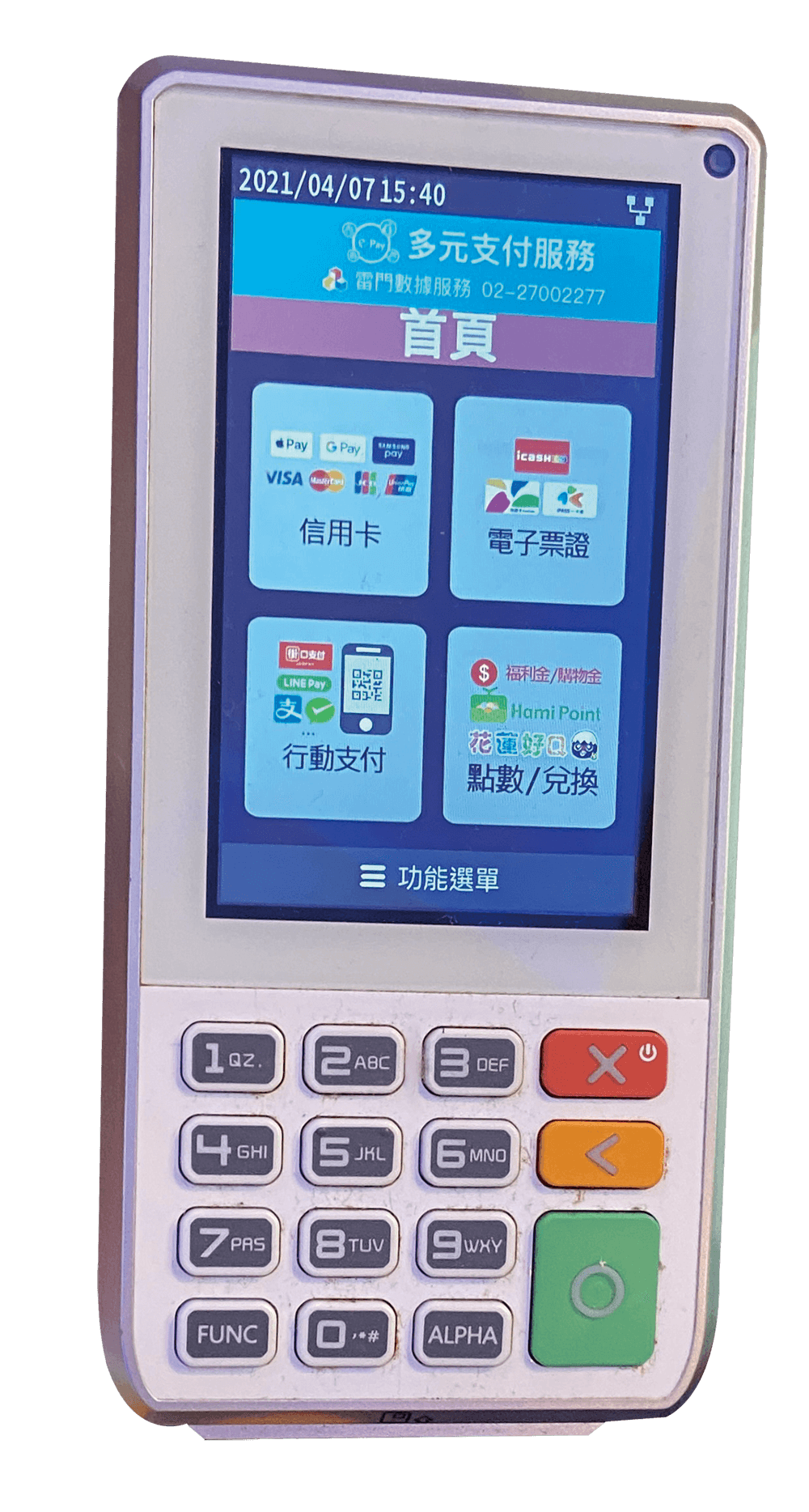 Diverse Mobile payment Systems Introduced at Amusement Parks
Diverse Mobile payment Systems Introduced at Amusement Parks
Amusement Park Digitalization
The Tourism Bureau promoted the transformation and upgrading of the amusement park industry under the Amusement Park Optimization Plan. Amusement parks received guidance in upgrading digital services and facilities, including developing virtual reality (VR), augmented reality (AR), and other interactive digital amusement facilities; introducing ERP, electronic payment, smart admission and queuing systems, park-wide Wi-Fi, and digital electronic display systems to improve service quality; and integrating high technology for smart park development to provide visitors new amusement experiences and a more convenient and friendly travel environment.
